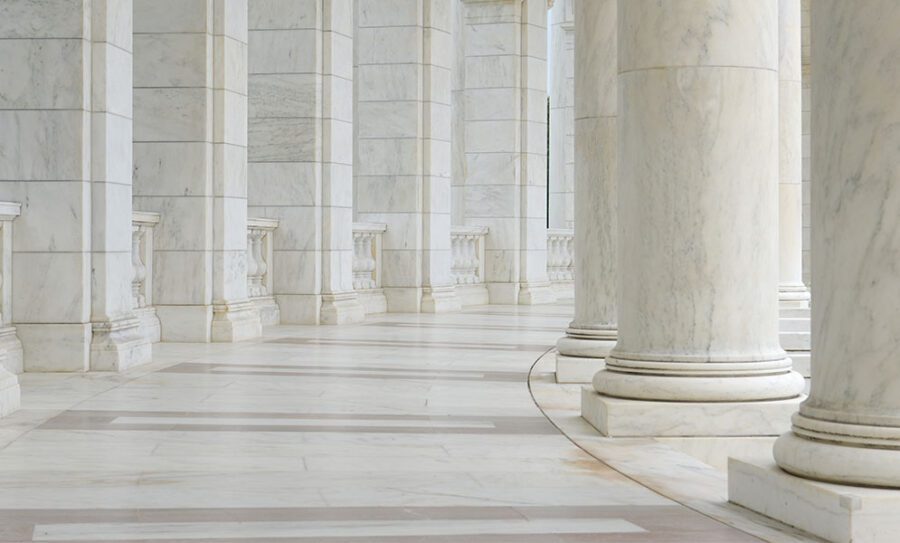“It is cardinal with us that the custody, care and nurture of the child reside first in the parents, whose primary function and freedom include preparation for obligations the state can neither supply nor hinder… It is in recognition of this that these decisions have respected the private realm of family life which the state cannot enter.” — Prince v. Commonwealth of Massachusetts, 321 U.S. 158 (1944)
In this piece, we will explore the next pillar of Education Independence: “God trusts parents with their children and so should we; therefore, we advocate for the protection of parental rights and educational autonomy from the state.” For the Choose Education Independence Initiative at Classical Conversations, this value serves as a pillar that shapes our form and a compass that orient our direction.
God Trusts Parents with their Children.
The word trust in this assertion is a word of jurisdiction. By way of narrative, we learn that when Adam and Eve brought their children into the world, the children were born to and raised by fallen humans. Adam and Eve did not earn this “privilege.” Their decision-making track record was not exemplary. Despite their track record, the jurisdiction of the family and the responsibility of parents was pre-ordained and set upon our first parents and every parent since. God trusts them by way of his choice to first “entrust.”
en·trust
verb or gerund or present participle: entrusting
- assign the responsibility for doing something to (someone).
- put (something) into someone’s care or protection.
…And So Should We.
Children have been entrusted to parents by God himself. Consequently, it is our obligation to align ourselves and our societies with God’s order and not attempt to conform God’s world to a different order. The scripture reaffirms this order repeatedly;
Deuteronomy 6:5–7: “You shall love the LORD your God with all your heart and with all your soul and with all your might. And these words that I command you today shall be on your heart. You shall teach them diligently to your children, and shall talk of them when you sit in your house, and when you walk by the way, and when you lie down, and when you rise.”
Psalm 127:3–4: “Behold, children are a heritage from the LORD the fruit of the womb a reward. Like arrows in the hand of a warrior are the children of one’s youth.”
Ephesians 6:1–4: “Children, obey your parents in the Lord, for this is right. “Honor your father and mother” (this is the first commandment with a promise), “that it may go well with you and that you may live long in the land.” Fathers, do not provoke your children to anger, but bring them up in the discipline and instruction of the Lord.”
Dealing with Objections and Matters of Justice.
Every time this conversation comes up within our fallen world, we must wrestle with the realities of abuse, neglect, and even the realities of orphaned children. In short, these are the exceptions, not in the sense that they live outside any guiding principles, but that once forfeiture of parental rights occurs, jurisdiction for responsibility expands to include additional responsible parties. In matters of abuse, an injustice has been committed. Society has governing principles for navigating allegations of crime rooted in Biblical principles of justice. Presumption of innocence, due process, and proportional punishment are all rooted in Biblical principles and foundational to our nation’s justice system. Modern policies, understandably, try to usurp these principles in attempting to predict where a crime against children may happen and trying to prevent potential crime. The problem with this, aside from the complete disregard for Western principles of justice, is that it disparages the jurisdiction, role, and responsibility of parents and transfers the jurisdiction to the state. Historically, the state stepping into the role of the parents has not fared well for the family, and we ought not to be surprised when rejecting God’s appointed spheres of governance has consequences.
Compromised by Public Funding
Aside from policies that usurp family autonomy, influence is being sold. How is this? Investors are always concerned with their shareholdings and ROI. This isn’t greedy of investors; accountability and assessment are wise investment strategies. Investors gain influence through governing their shareholdings. This is precisely where the idea “With the shekels comes the shackles” comes from. It’s not wrong for investors, even if that investor is the state, to be interested in the influence of their investment. In fact, when investing public money, public officials have substantially more reason to demand transparency and ensure a robust ROI.
The specific “investment” we are going to analyze here is publicly funded education programs. As a society, we have accepted the merit of this publicly funded commodity because it clearly benefits the entire community, even the nation, to have an educated population. The problem is that the funding mechanism intrinsically demonstrates ownership. Over the past 200 years, we have seen the consequences of this transaction mature. What started with education has trickled into childcare, free lunches, health care, and more. The public now fiscally owns much of the financial obligations to the upbringing of children. While some would prefer this transaction mirror the benevolent uncle with deep pockets who minds his own business, that simply denies that natural progression of reality. Some would say Jefferson was a prophet when he said, “The natural progress of things is for the government to gain ground and for liberty to yield.” On the contrary, the law of government to continually grow – past its appropriate jurisdiction– was already well established in Jefferson’s lifetime. Transactions always require that something is given up for something else. The question is, what is the family giving up in exchange for the investment of public funds into the jurisdiction of the family? Two hundred years later, we are coming to our senses and realizing we sold away our parental autonomy.
Fast Forward
Has society recognized this inherent flaw within the financial transaction model? In short, no. We see the consequences of the model and are not happy with the results. There are all sorts of PR campaigns championing the idea of parents reclaiming authority through choice. The problem is that these new ideas do not address the transaction in which the choice was sold. They would prefer we turn our state into the rich uncle with deep pockets who hands out ESAs like Christmas cards overflowing with cash. To my point, modern school choice policies attempt to sever the shekel from its shackles. While it is good to recognize the threat state shackles are to the family, condoning immoral public investment practices will not be without consequence. Families must conclude that if we want healthy societies, we must have both family autonomy and wise public investment strategies, which means no shackles AND no shekels. We must aim to keep public money out of our homes.




